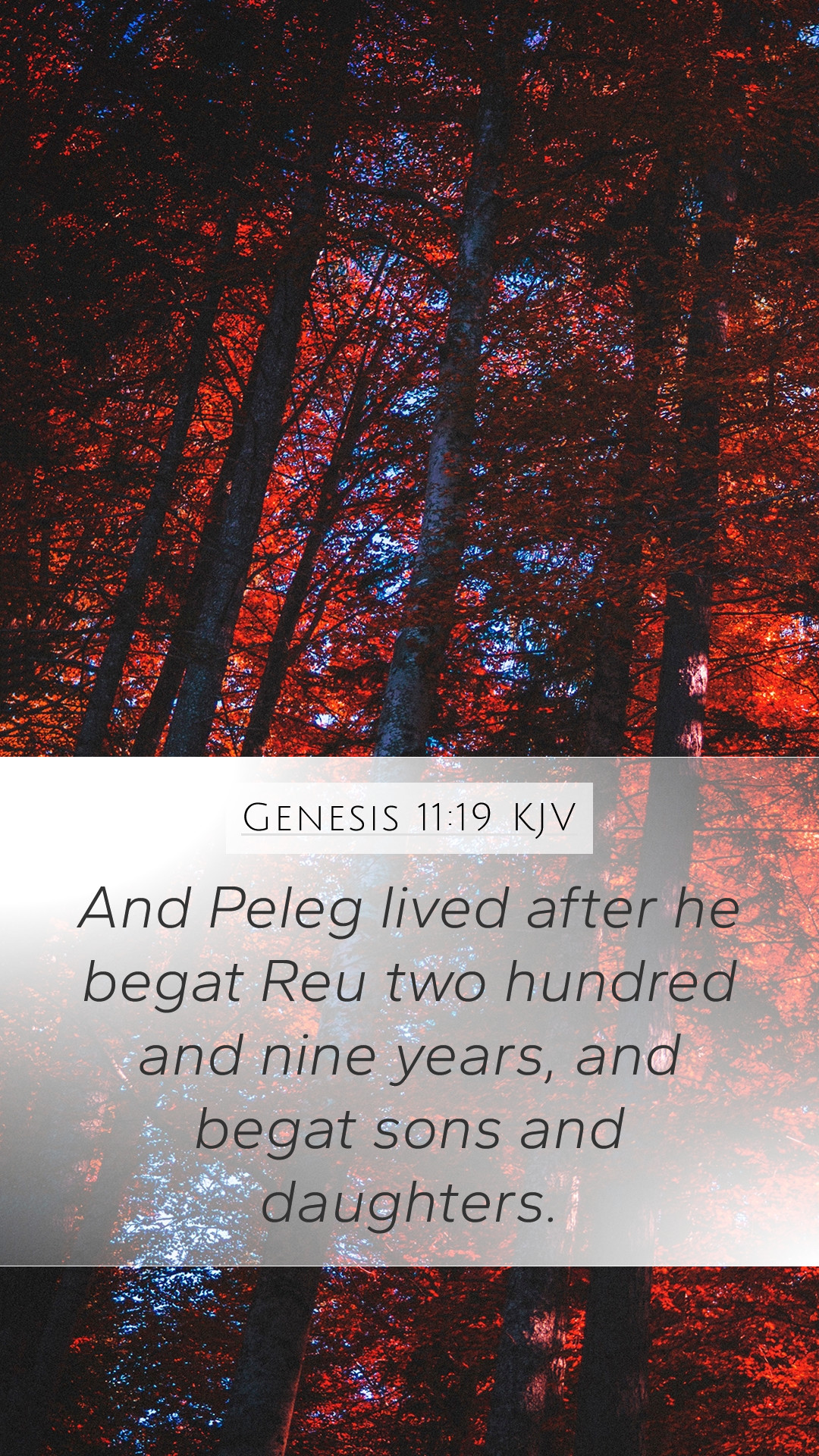Bible Verse Meaning: Genesis 11:19
Verse: "And they said, Go to, let us build us a city and a tower, whose top may reach unto heaven; and let us make us a name, lest we be scattered abroad upon the face of the whole earth." (Genesis 11:4, emphasis added)
Introduction to Bible Verse Interpretations
Understanding this scripture requires delving into the themes of human ambition, unity, and the divine response. In Genesis 11:19, we witness the unfolding of human intention to establish a collective identity and permanence against God's command to populate the earth. This examination offers profound Bible verse meanings, allowing readers to reflect on both the historical context and modern implications of these ancient words.
Contextual Analysis
Genesis 11:19 resides within the narrative of the Tower of Babel, where humanity's desire for self-glorification leads to divine intervention. This passage asks us to consider:
- The intention behind building the city and tower.
- The significance of reaching towards heaven.
- The consequences of seeking to "make a name" for oneself.
Insights from Matthew Henry
According to Matthew Henry, this verse illustrates the human propensity to unite under a singular goal, even when contrary to divine instruction. He emphasizes the folly of attempting to achieve renown through earthly means. Each effort to build the tower symbolized rebellion against God's command to spread across the earth.
Albert Barnes’ Commentary
Albert Barnes expounds on the significance of the tower's height and construction, interpreting it as an endeavor to reach the divine realm. Through this ambition, humanity attempted to render itself independent from God. The unity of speech and purpose among the people showcases the potential for collective action, both for good and ill, and the effort to circumvent God's plan.
Adam Clarke’s Exposition
Adam Clarke highlights the socio-political implications of the Tower of Babel. He suggests that the construction may have served as a defense mechanism to prevent dispersal, embodying humanity’s instinct for security and legacy. This emphasis on societal continuity reflects the human desire to create lasting change and establish a communal identity that opposes divine orders.
Biblical Exegesis and Commentary
In Biblical exegesis, we analyze the original wording, cultural implications, and theological ramifications. Key components of this verse include:
- Human Ambition: The passage reveals the drive to achieve greatness through human effort.
- Divine Authority: It reminds us that attempts to transcend God's will are futile.
- Community and Identity: The project symbolizes humanity's desire for communal identity over divine design.
Application of Genesis 11:19 in Daily Life
The significance of this verse extends into contemporary life, as it offers a lesson in humility and the risks of overreaching ambition. It challenges believers to consider:
- Are our aspirations aligned with God's plans?
- How do we define our identities in relation to God?
- What should be the foundation of our achievements – collective human effort or divine guidance?
Additional Cross References
- Genesis 1:28 - God's command to fill and subdue the earth.
- 1 Peter 5:5 - The importance of humility before God.
- Proverbs 16:18 - The danger of pride leading to downfall.
Conclusion
In summary, Genesis 11:19 serves as a poignant reminder of the inherent tension between human aspirations and divine purposes. Through careful Bible verse commentary, believers are encouraged to seek understanding and application of scripture within their lives, fostering a deeper Bible study experience. The narrative not only informs our Bible verse explanations of the past but also invites contemplation on how we navigate our present ambitions in faith.


